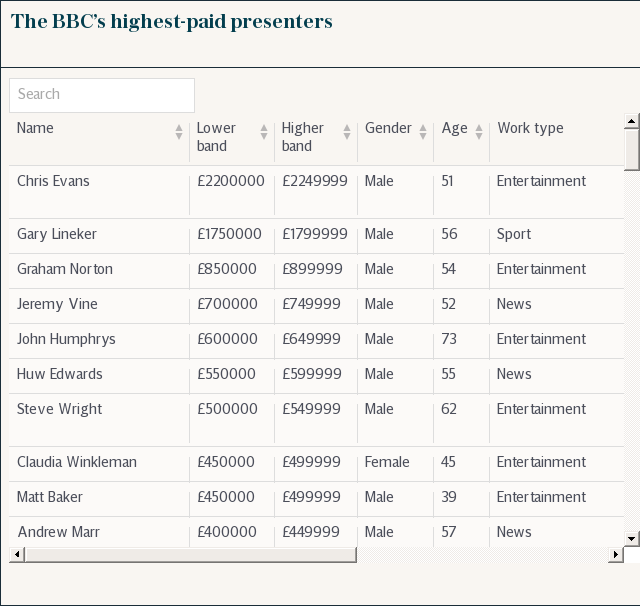Jeremy Vine ‘paid £80,000’ for his running commentary on Scottish referendum

Jeremy Vine was paid as much as £80,000 for just one programme on the night of the Scottish independence referendum.
A well-placed source has told The Daily Telegraph that the BBC offered Vine the sum for working on the 2014 referendum. The payment was separate to his earnings as a presenter on Radio 2 and as host of television quiz show Eggheads and other programmes.
Vine, 52, emerged last week as the fourth highest paid BBC star behind Chris Evans, Gary Lineker and Graham Norton. Last year he earned between £700,000 and £750,000 for a number of shows across the corporation.
Vine’s work for the BBC enables him – in common with other stars – to negotiate separate deals for each programme he works for. He was asked to work for the BBC on the night of the Scottish referendum in September 2014.
The terms of his contract are kept secret but the source said: “Jeremy Vine was paid £80,000 to work on the Scottish referendum.
“There was some preparation involved in the run-up … but the main job was working through the night as results came in.”
Vine did not present the show but appeared on a regular basis throughout the evening explaining how the result would likely pan out based on results as they came in.
It is not clear whether Vine is paid similar sums for general elections on top of his other work – but it is thought likely he negotiates a fee for each event. It is not known if Vine received similar fees for the two general elections and the EU referendum as well.

The BBC declined to comment on Vine’s payments for his work on elections and referendums.
A BBC spokesman said: “We published the amount Jeremy received on Wednesday and are not getting into further breakdowns.”
The spokesman added: “As well as presenting his daily Radio 2 show, which brings news and current affairs at the heart of the daytime schedule to 7.02m listeners a week, Jeremy is also the co-presenter of Crimewatch and presents Points of View. In the last year Jeremy has also presented 132 episodes of the popular daytime quiz show Eggheads.
"His experience of political, live and overseas reporting means he is also important as a co-presenter of major national events like General Elections and referendums.”
Vine also declined to comment on the size of the payment, referring The Telegraph to his agent. His agent said: “I never comment on clients individual deals. They are obviously confidential and covered by privilege.”

Sources sympathetic to Vine have pointed out the long hours he works and suggested other broadcasters on the list may earn less but work far fewer hours.
On Wednesday - the day the list was released - Vine was challenged on his Radio 2 phone-in programme to justify his wages. Harry Jones, a former Welsh miner, asked Vine: “Are you embarrassed to pick up your pay cheque?” and then: “Do you think you’re overpaid?”
Vine replied: “I don’t really want to answer that because I don’t think it’s the moment for me.”

Vine took over as the lunchtime voice of Radio 2 in 2003 when he was 37. His pay for the Radio 2 slot was reportedly £250,000. He first came to prominence in 2000 when he landed the co-presenting job on Newsnight but it was claimed that Jeremy Paxman was mocking him, calling him ‘Mini-me’ behind his back.
While women at the BBC fumed over the glaring gender pay gap, Jeremy Bowen, the BBC’s long-serving Middle East editor, appeared to be unhappy at his placing in the lower reaches of the published list.
Bowen earns £150,000-£199,999, putting him in the same bracket as fellow foreign correspondent John Simpson but behind newsroom-based colleagues such as George Alagiah and Huw Edwards. He had a busy day on social media after the report was published, retweeting praise from followers including the comment: “Shameful that journos like @BowenBBC who constantly put their lives in line of fire are in the lowest bracket of the BBC pay table.”

 Yahoo News
Yahoo News 
